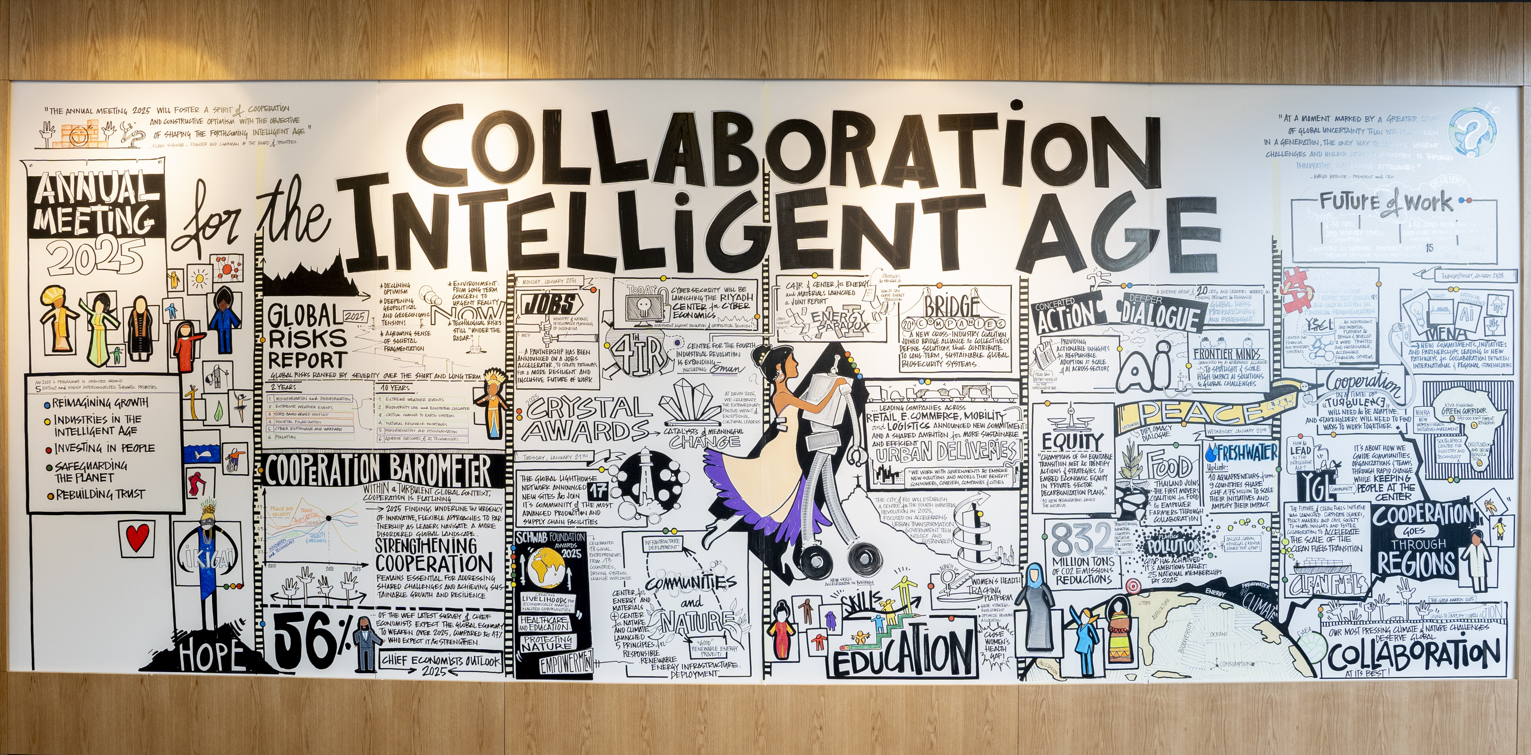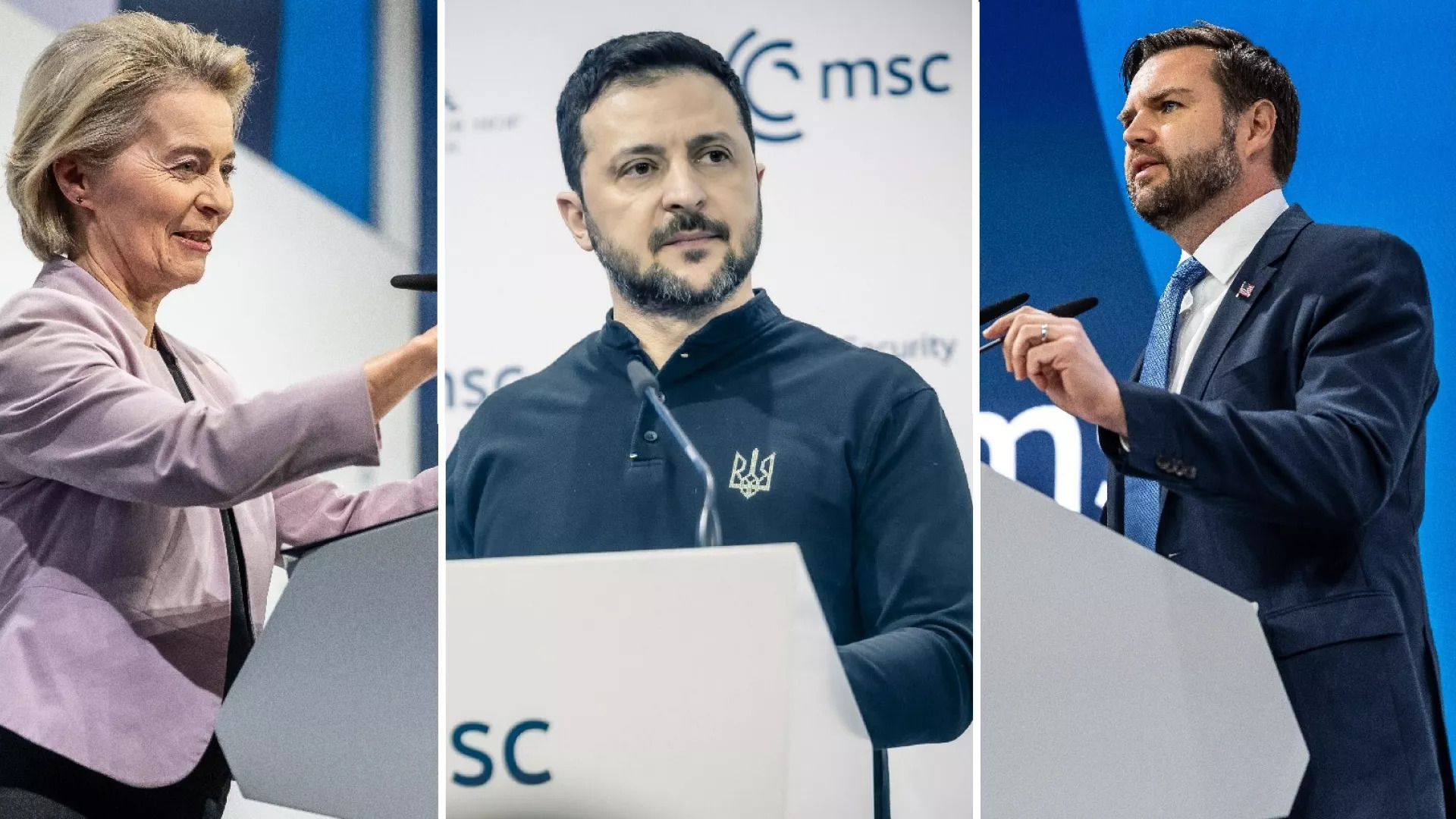
Many initiatives are launched at the World Economic Forum 2025 annual meeting, but not all are what you might expect from a large business event. (Photo: World Economic Forum)
At the beginning of this year, the Davos Forum, the Artificial Intelligence Action Summit and the Munich Security Conference were held successively. They clearly reflected many defining features of the current international landscape.
First, aspirations for economic cooperation are growing, even as competition escalates. Amid intensifying geopolitical competition and a clear lack of cooperation between major powers, calls for global economic cooperation have grown significantly louder in recent days.
The World Economic Forum 2025 in Davos focused on its theme — Collaboration for the Intelligent Age — aiming to promote global cooperation and resilience amid growing global division. The participants engaged in in-depth discussions on key topics, including global economic growth, trade cooperation and sustainable development. The pursuit of opportunities for cooperation and collective efforts against economic challenges emerged as a shared aspiration of most countries. However, behind the call for cooperation lies international economic competition, which has grown increasingly fierce.
Nations are working to promote their economic development and enhance their status in the global economy. At the same time, trade protectionism, technology blockades and other barriers still have broad appeal, posing long-term obstacles to global economic cooperation. Donald Trump, now back in the White House, delivered a video speech at the Davos forum in which he vigorously urged countries to invest in the United States and blatantly threatened to impose tariffs to reduce trade deficits with the European Union and China.
The Global Cooperation Barometer 2025, jointly released by the World Economic Forum and McKinsey & Company, reveals that political and geopolitical turmoil has seriously affected the models of multilateral cooperation, with international cooperation having essentially flatlined.
Second, divides in tech competition and governance continue to escalate. Following the 2023 UK Global AI Safety Summit and the AI Seoul Summit 2024, France convened the AI Action Summit this year in an effort to implement the consensus reached in previous sessions in more areas of global cooperation. The summit, however, highlighted the growing intensity of international competition around AI and the prominent differences in governance models.
At the summit, 61 countries and international organizations, including China, India and the European Union, jointly issued the Statement on Inclusive and Sustainable Artificial Intelligence for People and the Planet. The statement emphasized the need to promote AI accessibility to reduce digital divides; to ensure that AI is open, inclusive, transparent, ethical, safe, secure and trustworthy; and to reinforce international cooperation to promote coordination in international governance. However, the United States and the United Kingdom, two global AI leaders, notably didn’t sign the statement, reflecting obvious differences in principles regarding tech development and cooperation in AI regulation and governance by Europe, China and others.
In addition, recognizing the importance of AI to future development, countries around the world have increased their investment to secure a leading position in the field. On the second day of his presidency, Trump announced a $500 billion “Stargate” project, and French President Emmanuel Macron unveiled plans for 109 billion euros of private AI investment. Both nations aim to rapidly improve their AI capabilities through large-scale capital investment to gain a more advantageous position in the global tech race. At a time when international cooperation for AI development and governance is urgently needed, the prevalence of “sovereign AI” threatens to undermine the depth and breadth of international cooperation and aggravate the fragmentation of the global technology map.
Third, the global security situation is growing more complex and divided. Over the past few years, the global security situation has remained severely troubled, with large-scale wars and conflicts multiplying and the deficit in global governance continuing to increase. A leading platform for debating the most pressing challenges to international security, the Munich Security Conference convened under the theme “Build Peace Through Dialogue.” But given unprecedentedly prominent differences in the participants’ perceptions of security threats, the prospects for meaningful cooperation remains dim. During the conference, the world’s leading powers discussed ways to ease conflicts on the European continent and strengthen international security cooperation. Yet U.S. Vice President JD Vance, who attended the conference for the first time, claimed that illegal immigration was the biggest threat to European countries and accused European leaders of suppressing free speech and censorship and retreating from some of its most fundamental values.

Vance’s hot speech ignited a firestorm across Europe. Unorthodox as it may seem, it highlighted the increasing fundamental differences across the Atlantic, including security concepts and threat perception. Although both sides are part of the Western bloc, their notable differences have made it more difficult to reach a consensus on how to maintain security.
The Munich Security Report 2025, which was released at the conference, noted that Trump’s proposed “land grabs” and other muscular actions have undermined the perceived position of the United States as “an anchor of stability, but rather a risk to be hedged against.” The resurgence of territorial expansion will obviously add to the complexity of the global security situation and hinder security cooperation in important areas, such as climate change, arms control and preventing potential threats from technological development — issues that are already at an impasse.
The Davos Forum, the Artificial Intelligence Action Summit and the Munich Security Conference — all three of which were held in Europe — each focused on an important global issue: the economy, technology or security. Together, they underscored the defining feature of the current international landscape, which is a complex and evolving mix of cooperation and competition. In today’s world, countries can effectively respond to global challenges only by strengthening communication and cooperation on the basis of mutual respect, equality and mutual benefit.